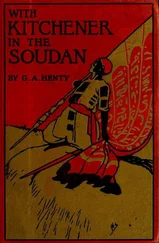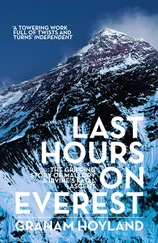Charles Gilson - Across the Cameroons - A Story of War and Adventure
Здесь есть возможность читать онлайн «Charles Gilson - Across the Cameroons - A Story of War and Adventure» — ознакомительный отрывок электронной книги совершенно бесплатно, а после прочтения отрывка купить полную версию. В некоторых случаях можно слушать аудио, скачать через торрент в формате fb2 и присутствует краткое содержание. Жанр: Прочие приключения, foreign_prose, на английском языке. Описание произведения, (предисловие) а так же отзывы посетителей доступны на портале библиотеки ЛибКат.
- Название:Across the Cameroons: A Story of War and Adventure
- Автор:
- Жанр:
- Год:неизвестен
- ISBN:нет данных
- Рейтинг книги:3 / 5. Голосов: 1
-
Избранное:Добавить в избранное
- Отзывы:
-
Ваша оценка:
- 60
- 1
- 2
- 3
- 4
- 5
Across the Cameroons: A Story of War and Adventure: краткое содержание, описание и аннотация
Предлагаем к чтению аннотацию, описание, краткое содержание или предисловие (зависит от того, что написал сам автор книги «Across the Cameroons: A Story of War and Adventure»). Если вы не нашли необходимую информацию о книге — напишите в комментариях, мы постараемся отыскать её.
Across the Cameroons: A Story of War and Adventure — читать онлайн ознакомительный отрывок
Ниже представлен текст книги, разбитый по страницам. Система сохранения места последней прочитанной страницы, позволяет с удобством читать онлайн бесплатно книгу «Across the Cameroons: A Story of War and Adventure», без необходимости каждый раз заново искать на чём Вы остановились. Поставьте закладку, и сможете в любой момент перейти на страницу, на которой закончили чтение.
Интервал:
Закладка:
Jim Braid-who, in very truth, was the prisoner in the dock-was seated on a chair, facing the Judge. On either side of the table were those whom Mr. Langton proposed to call as witnesses-namely, Captain von Hardenberg, John Braid, and the under-gamekeeper.
The face of the prisoner in the dock was white as a sheet. Harry Urquhart stood behind his uncle's chair, regarding his old friend with commiseration in his eyes and a deep sympathy in his heart.
Von Hardenberg's evidence differed in no material points from what he had said before. Indeed, he played his cards with almost fiendish cunning. The circumstantial evidence was all against the boy. The Judge had not yet discovered that the Sunstone was missing. There was no doubt that both the door of the bungalow and the cash-box had been broken open by the crowbar-moreover, the very crowbar which the Judge himself had seen in Jim's hands on the afternoon of the crime. Neither John Braid nor any other gamekeeper could do anything but bear out the testimony of von Hardenberg. When they entered the bungalow the boy's guilt had seemed manifest.
In his own defence Jim could state as much of the truth as he knew. He said that he had seen von Hardenberg break into the bungalow; he swore that he had lent him the crowbar that very day. Asked why he supposed the Judge's nephew had become a burglar, he was unable to give an answer. From his position he had not been able to see into the room; he had not the slightest idea what von Hardenberg did immediately after entering.
All this the Judge flatly refused to believe. He protested that it was ridiculous to suppose that a young man of von Hardenberg's position would rifle a cash-box, containing about twenty pounds. In Mr. Langton's opinion, the case was proved against the boy; he could not doubt that he was guilty. He said that he would refrain from prosecuting, since John Braid had served him faithfully for many years, but he was unwilling any longer to employ Jim on the estate.
When Mr. Langton had finished, John Braid asked for permission to speak, and then turned upon his son with a savage fierceness that was terrible to see. He disowned him; he was no longer a son of his. He pointed out the benefits Jim had received at the hands of Mr. Langton, and swore that he had never dreamed that such ingratitude was possible. As far as he was concerned, he had done with his son, once and for all. He would blot out his memory. Henceforward Jim could fend for himself.
Still weak from his wounds, and with a far greater pain in his heart than ever came from physical hurt, the boy rose to his feet and slowly and in silence left the room. He went to his father's cottage, and there saw his mother, from whom he parted in tears. Then, shouldering the few belongings he possessed, done up in a bundle that he proposed to carry on the end of a stick, he went his way down the drive of Friar's Court.
He had not gone far before he heard footsteps approaching, and, turning, beheld Harry Urquhart, running forward in haste. The boy waited until his friend had come up with him. He tried to speak, but found that impossible. Something rose in his throat and choked his power of utterance.
"You believe in me?" said he at last.
"I do," cried Harry, "and I always will! I know that you are innocent!"
"Thank you for that, sir!" said Jim. "I can go my way with a lighter heart."
"Where are you going?" asked Harry.
"I don't know, sir, and I don't think I care. Anywhere, so long as I can get away from this place where I am suspected and despised!"
"Have you any money?" asked Harry.
Jim shook his head.
"Here you are. Take this. It's all I have." And Harry thrust into his friend's hand a five-pound note.
Jim hesitated to take it; but in the end he did so, folding it carefully and putting it into his waistcoat pocket.
"God bless you, sir!" said he.
"I'll make it my life's work," cried Harry, "to prove your innocence. I'm confident I will succeed in the end. For the present, good-bye!"
"Good-bye!" said the other. He dared not look young Urquhart in the face, for his eyes were filling fast with tears.
Then he went his way, throwing himself upon the mercy of the world, with life before him to be started all anew. Under his own name, and with his old surroundings, he was disinherited, disowned, and dishonoured. He must find some new employment. He must endeavour to forget and to live down the past.
At the gate of the drive he came into the highroad, and, turning his face towards London, set forward, walking as quickly as he could.
CHAPTER V-The Eleventh Hour
The following day Captain von Hardenberg left Friar's Court. He had more reasons than one to be anxious to return to London.
The robbery and the outrage at the bungalow had sadly interrupted Mr. Langton's studies. Nearly a month elapsed before the Judge took up his old researches, and then it was that for the first time he discovered that the Sunstone was missing. Search where he might, he could find it nowhere. The evidence was against Jim Braid, and there was no one to speak up on his behalf, for by then Harry Urquhart had returned to school. On the night Braid was wounded, only his coat pockets had been emptied, and, since the whole of the money had been recovered, no further search had been made. The Judge had little doubt in his mind that, as well as the contents of the cash-box, the boy had stolen the Sunstone, though poor Jim could have had no idea as to its value.
Mr. Langton was determined to recover the relic at all costs. He spent a great deal of money on advertisements, and gave a full description of Braid to the police; but no trace of the boy could be found. It was not until Christmas had come, and Harry Urquhart was again at Friar's Court, that the Judge told his nephew of his suspicions.
And though Harry was sure of Braid's innocence, he could not convince the Judge. Mr. Langton's mind was the mind of a lawyer; he based his conclusions upon the testimony of facts, and never allowed his personal opinions to influence him in the least.
Though the police had failed to discover any trace of Braid, Harry was determined to find him. Since he had now left school, he obtained permission from his uncle to go to London. He felt perfectly certain that Braid was somewhere in the great city where it is possible for a man to hide himself from the eyes of the world, even to bury his identity.
In the meantime, Captain von Hardenberg had presented himself before Peter Klein, the informer, and a long interview had taken place between them.
Peter listened to the whole story of the Sunstone, doubted it one moment, believed it the next; and fingered the strange jade ornament, first with reverence, and then almost with suspicion. He examined it through a magnifying-glass, shook his head, shrugged his shoulders, and found it impossible to make up his mind. Von Hardenberg made no secret of the fact that he was determined to undertake a journey through the German colonial territory of the Cameroons to the Caves of Zoroaster, to recover the jewels that were hidden in the vault. With the treasure once in his possession, he swore that he would pay Klein, not only the full amount that was due to him, but ten per cent of the total profits.
Now, Peter Klein was a usurer-as well as a butler and a spy-one who drove a hard bargain, who was relentless to his victims. He said that he himself was tired of cities, that the suspicions of the British police authorities had already been aroused in regard to his occupation, and that therefore he also would like to travel. He would accompany von Hardenberg to the West Coast, which was once called the White-Man's Grave; he would penetrate the bush to the Cameroon peaks, even to the Caves of Zoroaster. But he would require more than ten per cent: they would share and share alike.
Читать дальшеИнтервал:
Закладка:
Похожие книги на «Across the Cameroons: A Story of War and Adventure»
Представляем Вашему вниманию похожие книги на «Across the Cameroons: A Story of War and Adventure» списком для выбора. Мы отобрали схожую по названию и смыслу литературу в надежде предоставить читателям больше вариантов отыскать новые, интересные, ещё непрочитанные произведения.
Обсуждение, отзывы о книге «Across the Cameroons: A Story of War and Adventure» и просто собственные мнения читателей. Оставьте ваши комментарии, напишите, что Вы думаете о произведении, его смысле или главных героях. Укажите что конкретно понравилось, а что нет, и почему Вы так считаете.












